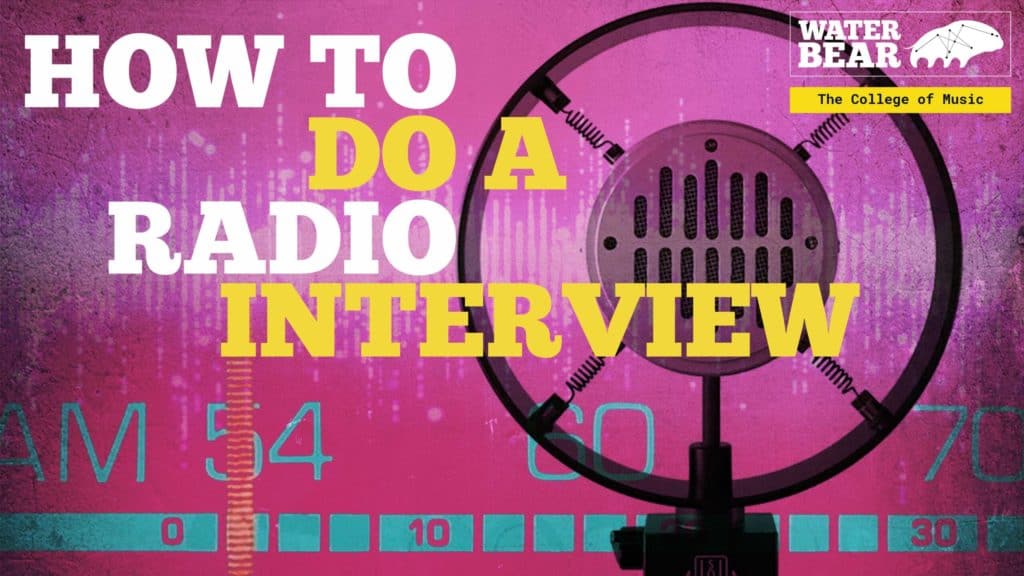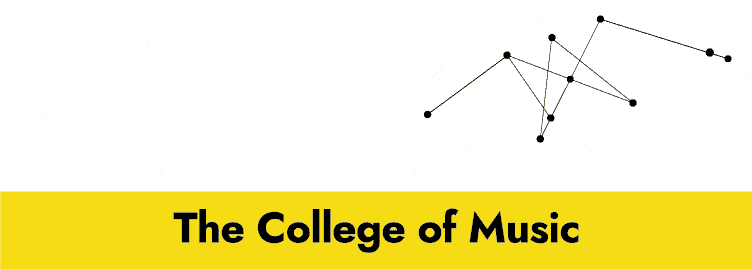JOIN US SEPTEMBER 2024 - APPLY TODAY OR BOOK YOUR PLACE ON ONE OF OUR OPEN DAYS IN BRIGHTON OR SHEFFIELD
JOIN US SEPTEMBER 2024 - APPLY TODAY OR BOOK YOUR PLACE ON ONE OF OUR OPEN DAYS IN BRIGHTON OR SHEFFIELD

One of the most common questions that I’m asked is “how do I do an interview on the radio”? to which I always respond with the question “have you got your story straight”?
Take into consideration that music and lyrics make up the narrative of your songs, the very thing that underpins your creation is your story. Your story is the accompanying, yet crucial, piece of information about you as an artist, the personal narrative to the overall narrative that you communicate through your song writing.
My two favourite quotes are from Robert McKee, Hollywood screenwriter and Nancy Duarte, author and business innovator in communication.
“The best way to unite an idea with emotion is by telling a compelling story. In a story, you not only weave a lot of information into the telling, but you also arouse your listeners’ emotions and energy”- Robert McKee, Screenwriter, The Colour Purple.
“You can have piles of facts and still fail to resonate. It’s not the information itself that’s important but the emotional impact of that information. This doesn’t mean you need to abandon facts entirely. Use plenty of facts but accompany them with emotional appeal”. Nancy Duarte, Author of Resonate: Present visual stories that transform audiences.
What McKee and Duarte are telling us here is that there are certain elements when putting your story together you might want to consider.
McKee talks about “arousing your listeners’ emotions and energy” and in an interview this plays a pivotal part in articulating yourself effectively. Show passion, tell us what this story means to you. To paraphrase Nancy Duarte, we could rattle off a series of information soundbites that do not resonate with the audience which runs the risk of a hideously dull method of delivery I fondly refer to as “death by Wikipedia”.
What is “death by Wikipedia”? It’s those interviews I dread; those interviews that sound like you're telling your story like a series of historical dates, piece by piece information that’s delivered to the interviewer and then onto the audience. This is where there is an opportunity to deliver the facts but accompany them with emotional appeal.
This is where a sense of story plays an absolutely crucial role; an emotional investment by the artist, a means of connection to the band as a whole and a reference point. With a confident story, invested in by the whole band, it can create (to quote the painter Bob Ross) “happy little accidents”.
When working with clients we model our story on three points of reference.
The happy accident, the magic or consequence, of having a story that the whole band can identify with means you can ‘perform’ your story in an interview with confidence. Much like you do with your songs – you are confident in the lyrics and melody. So now you have your story that you all had a hand in writing, we are ready to do an interview.
A common misconception of an interview is that you are expected to recall all the important information from memory alone, this is wrong. The only people that can do that are those who have a high-functioning, photographic memory. Most of us, myself included, do not possess this skill. A pen and paper accompanied with some facts are your ideal partners in an interview situation.
So, what basic facts do you need in front of you before you go into an interview (or a series of interviews in a festival scenario)?
We are now in the interview, you have your story, you are connected to it, you are confident telling it. You also have a notepad with all the information on the current release, locations, dates and so on.
Endear your host. Remember that someone has taken the time and interest to interview you, they want access to you, your music and your story. It is important to acknowledge the interviewer and make them a fan. A simple way of doing this, and therefore connecting with the interview on a human level, is by remembering and recalling their name. What does that do? The Washington Post said, “A person's name is the greatest connection to their own identity and individuality. Some might say it is the most important word in the world to that person. It is the one way we can easily get someone's attention... When someone remembers our name after meeting us, we feel respected and more important”. It’s an easy win that is often overlooked.
We all have a member of the band who is the loose cannon – they sometimes say the wrong thing at the wrong time. They’re often a great asset to the band in many ways but if there’s a pause between question and answer, they fill it with whatever springs to mind. To avoid any blips, those gaps are great opportunities to bring your story back to the forefront and get the interview back on track firmly and confidently.
So, what’s our takeaway?
1) Story - Create it, invest in it and tell it from your perspective
2) Remember the name, the journey, the destination, the product and where we can find you/it.
3) Bring your bio to life
4) Prepare with confidence (and for the unexpected)
5) Enjoy the opportunity
To find out more, check out our courses here.

- ‘Water bear’ is the common name for a Tardigrade.
- Tardigrades are micro creatures, found everywhere on earth.
- They are the most resilient creatures known.
- They can survive and adapt to their surroundings, even in outer space.
- Their resilience and ability to adapt and survive inspires us in everything we do. We love them.


WaterBear Education Ltd, Hanover House,
118 Queens Road, Brighton BN1 3XG, UK Map
Email: [email protected]
Tel: +44 (0) 1273 726230
WaterBear Sheffield, Unit 4, Gatecrasher,
49 Eyre Lane, Sheffield S1 4RB, UK
Email: [email protected]
Tel: +44 (0) 1143 992720

WaterBear Education Ltd, Hanover House,
118 Queens Road, Brighton BN1 3XG, UK Map
Email: [email protected]
Tel: +44 (0) 1273 726230
WaterBear Sheffield, Unit 4, Gatecrasher,
49 Eyre Lane, Sheffield S1 4RB, UK
Email: [email protected]
Tel: +44 (0) 1143 992720
- ‘Water bear’ is the common name for a Tardigrade.
- Tardigrades are micro creatures, found everywhere on earth.
- They are the most resilient creatures known.
- They can survive and adapt to their surroundings, even in outer space.
- Their resilience and ability to adapt and survive inspires us in everything we do. We love them.
